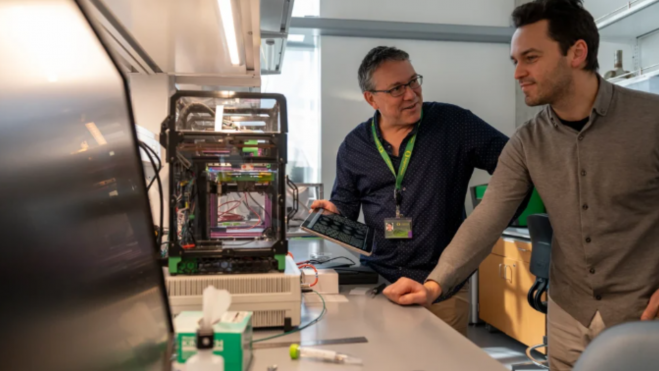Cosmetics giant L'Oréal continues to innovate. This time, hand in hand with the University of Oregon. The French cosmetics company is going further in the innovation of skin models and has jointly created an artificial skin model that resembles natural human skin. L'Oréal has indicated that this is achieved through a network of 3D printed threads in which cells that mimic the structure of human skin are grown inside. This cultivation takes only 18 days and they have made progress in reducing the time of previous models that took between 21 and 35 days, thus increasing the feasibility of testing in commercial laboratories.
Researchers at L'Oréal and the University of Oregon have developed plastic scaffolds that mimic the extracellular matrix based on 3D printed yarns and have two layers separated by a membrane that prevents cells from combining as they develop. The structure was created using a technique called fusion electrospinning.
The company said that the versatility and adaptability of this model allows applications such as the study of the effects of the biological and physical microenvironment on the skin, the creation of pathological skin models, the testing of dermo-cosmetic and pharmaceutical treatments on skin of different ages, and the study of wound healing and development for possible use as a graft or dressing.
The company has expressed that the versatility and the adaptability of this model allows applications like the study of the effects of the microentorno biological and physicist in the skin, the creation of pathological cutaneous models, the essay of treatments dermocosméticos and chemists in skins of distinct ages and the study of the cicatrisation and the development of wounds for his possible use like injerto or dressing.
‘Our collaborative research has not only accelerated the process of skin reconstruction, but has also opened avenues for future applications in skin tissue engineering. We are excited to explore new applications, reinforcing our commitment to innovation and beauty without animal testing,’ said Anne Colonna, L'Oréal R&I's head of advanced research.
